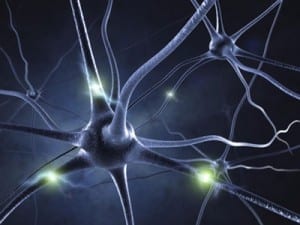
Moving forward, they will re-test their best compound in the best rodent model, conduct toxicology studies, and then—should all go well—seek permission from the U.S. Food and Drug Administration to start a clinical trial.
For decades, patients with Parkinson’s disease (PD) have had the same experience. Their hands start to shake uncontrollably, their limbs become rigid and they lose their balance. Years before those movement problems set in, many begin struggling with fainting, incontinence, sexual dysfunction, anxiety and depression. Most patients are still treated with a 42-year-old drug called L-DOPA, which temporarily staves off symptoms but can itself cause heart arrhythmias, stomach bleeding and hallucinations.
This punishing experience may explain in part why patients with PD die at twice the rate of those without the disease in the years after their diagnosis. In this light, it’s best to tread carefully when talking about early study results that promise something better. That said, a team of researchers at the University of Alabama at Birmingham is excited.
The team has identified a set of experimental drugs called LRRK2 inhibitors that may go beyond symptom relief to directly counter the inflammation and nerve cell death at the root of Parkinson’s. At least, these effects have been suggested in mouse and cell culture studies meant to approximate human disease. UAB researchers reported on these findings today in a presentation at Neuroscience 2012, the annual meeting of the Society for Neuroscience in New Orleans.
“We don’t yet know what percentage of patients might benefit from LRKK2 inhibitors, but LRRK2 is without a doubt the most exciting target for neuroprotection to have ever been identified in Parkinson’s disease,” says Andrew West, Ph.D., associate professor in the Department of Neurology within the UAB School of Medicine, who gave the presentation at Neuroscience 2012. “We will repeat our experiments many times before drawing final conclusions, but our ultimate goal is see our compound or something like it enter toxicology studies, and ultimately, clinical trials as soon as is prudent.”
While West’s compounds are promising, they still face many crucial tests that will decide whether or not they reach human trials. But the field is excited, because this is the first time such a drug target has been found for any neurodegenerative disease. Along with evidence that LRRK2 plays a crucial role in the mechanisms of Parkinson’s disease, it is a protein kinase, the same kind of enzyme (although not the same one) that has been safely and potently targeted by existing treatments for other diseases, including the cancer drugs Herceptin, Tarceva and Erbitux.
via University of Alabama at Birmingham
The Latest Streaming News: Neuroprotection updated minute-by-minute
Bookmark this page and come back often
Latest NEWS
Latest VIDEO







